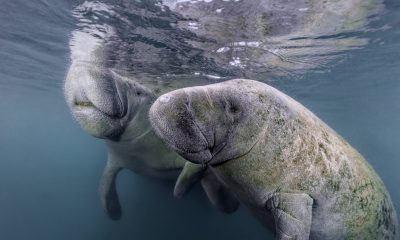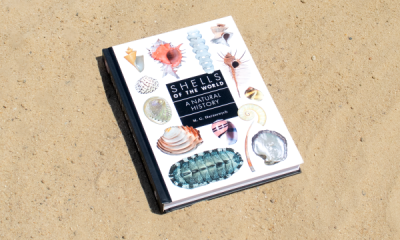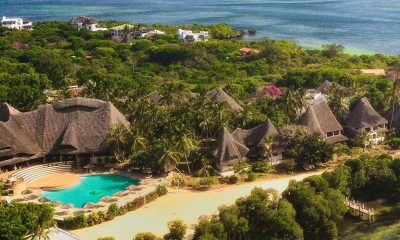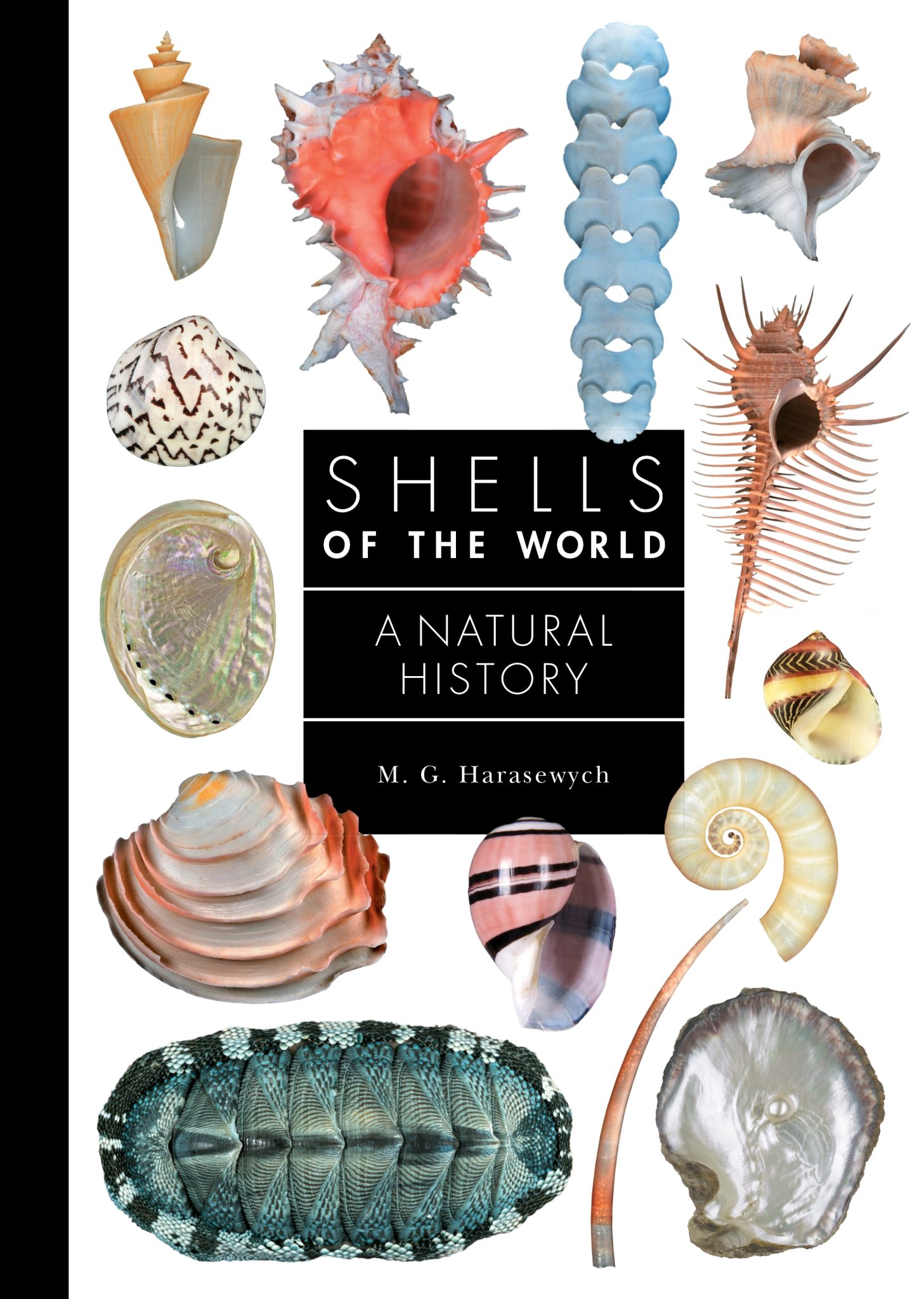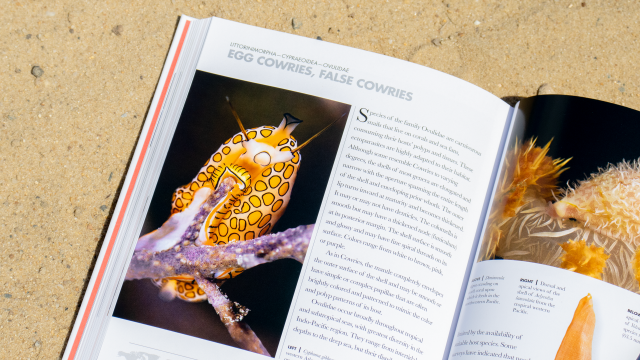Blogs
Travelling during a Global Pandemic
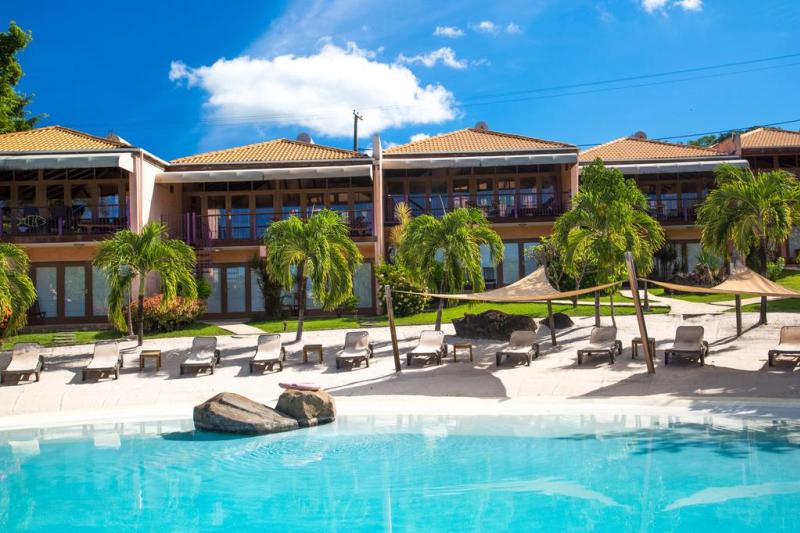
Blog by John Spencer-Ades at The Scuba Place
The year 2020 has been, let’s say, interesting, at the least!
The World has been held to ransom by an invisible bug, and the impact has been both deep on a personal level and wide on a global society level. Families have been separated, friends and social life put on hold, people have lost loved ones and businesses have been decimated.
I have learned that I took life for granted to a certain extent – hopping on a plane to go on a dive trip was a very regular activity. Then came COVID-19, and with it, a dawning sense of reality that travel (and indeed diving to a lesser extent) was no longer a right.
With zero income from booking trips for people, plentiful outgoings in the form of giving refunds, and an immediate focus on re-booking existing trips for later in the year, my initial optimism that this would be a short-term thing fell flat on its face when lockdown (v1.0) was implemented.
As the Summer of Discontent extended into the Autumn of Austerity, we focused all of our efforts on constantly monitoring where we were might be able to travel to. The good old FCO list was indeed pretty useless on this note, as it lists only countries that we are allowed to travel back to the UK from, and not necessarily to. The vast majority of the rest of the World doesn’t want us anywhere near them it seems. And, to boot, there are numerous countries that didn’t accurately publish their entry protocols.
We booked group trips in September to various destinations, and then cancelled them or postponed 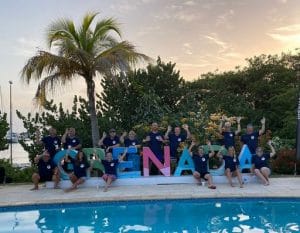 them – again. We found new destinations that we could travel to with good diving, booked them, and then the ‘green list’ changed again. We had clients arrive at Gatwick for their outbound flight, only to be told that the rules had changed again, and they would need to quarantine upon return. And we also had clients in resort have their return to the UK impacted, both by the changes made in entry protocols, and indeed the airlines.
them – again. We found new destinations that we could travel to with good diving, booked them, and then the ‘green list’ changed again. We had clients arrive at Gatwick for their outbound flight, only to be told that the rules had changed again, and they would need to quarantine upon return. And we also had clients in resort have their return to the UK impacted, both by the changes made in entry protocols, and indeed the airlines.
So, arranging travel has been like herding cats this year – every itinerary moved, and multiple times but here is the important bit… we actually got to travel in October.
The FCO list stated travel to Grenada was finally permissible, the Grenada Health Authority had clearly set out their COVID protocols for entry and stay, so we had little or no hesitation in booking a trip – for 18 of us! This was a trip that had been rearranged twice already, but the light was green at last!
And here began the challenge……….
Firstly, and easily, we booked our flights with British Airways – direct to Grenada but in reality, with a scheduled touch down in St Lucia. Then came the pre-departure PCR Testing – we had to have one done (and with negative results of course!) 7 days before departure.
Good old BA have a partnership with one of the testing labs, so we all booked and paid for this on-line, taking advantage of the BA discount. The test kits are sent to you by post, you register them online and take the test.
Planning when to take the test is a task – we flew on a Wednesday, so needed to take the test the previous Thursday at the earliest (for entry validity) and by Friday at the latest to ensure we got the results back in time for our departure. So, we stuck cotton buds down each other’s throats, extracted all sorts of bodily fluids, inserted the swab into the test tube, popped them in the post, and waited! The preferential postage service included did the trick, and results were back for some as early as Saturday!
Then less than 20 hours before departure, we received the dreaded email – the flight to Grenada was cancelled! BA offered to take us to either Barbados or St Lucia. Not especially helpful, as both those destinations have different COVID entry requirements and rules for visitors, so for the third time, this trip looked like it was doomed. Those who hadn’t checked in got a phone call from yours truly to explain the situation – some of them were on their way to Gatwick from all parts of the country to stay in a hotel the night before!
There were no available flights on domestic airlines between St Lucia and Grenada and we couldn’t go to Barbados as PCR tests were required within 96 hours of departure and we now didn’t have time to get another test done. Even staying in St Lucia wasn’t an option, as the entry rules required prior registration and approval. There was no other route, as all roads to Grenada are via St Lucia, Barbados or the USA, which is an even bigger ‘no-no’ than the first two choices when it comes to entry, quarantine and all that malarkey.
So, we did what any super-sensible person would have done. Cancel? No – we chartered a private plane 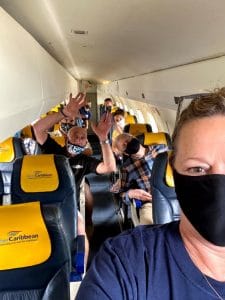 from St Lucia to Grenada, departing some 1 hour after having landed in St Lucia.
from St Lucia to Grenada, departing some 1 hour after having landed in St Lucia.
Wednesday morning at Gatwick was surreal. Empty. Desolate. Like a ghost-town. Well, apart from the check in lines as there were so many people who hadn’t been made aware of the flight cancellation.
Security – I have never been through security so fast, even when flying up in the front of the plane. Boarding was super-efficient and socially distanced, and the plane itself was so clean it could have been brand new.
Reassured by the HEPA filters making the aircraft purportedly as clean as an operating theatre, and with face masks donned, we sat and awaited departure. Sure enough, the doors closed, we backed away from the gate and hit the skies. Passengers on the flight (it was approximately 60% full) were all extremely well behaved, wore their masks, didn’t queue for the loos, and generally sat still and helped to empty the bar. This is how a flight should be!
Arriving in St Lucia was even more streamlined – whipped off the plane, personally escorted through test checks, temperature checks, immigration and baggage – and then immediately onto our onward flight. It really could not have been simpler or easier, even with the distraction of spotting a very well-known actor in the queue!
Arriving in Grenada, some 35 minutes after departing St Lucia, was a breeze too. We got a full health briefing, temperature checks and signed our health disclaimers – then it was straight to baggage, immigration, transport, and finally, FINALLY, our resort – True Blue Bay Boutique Resort!
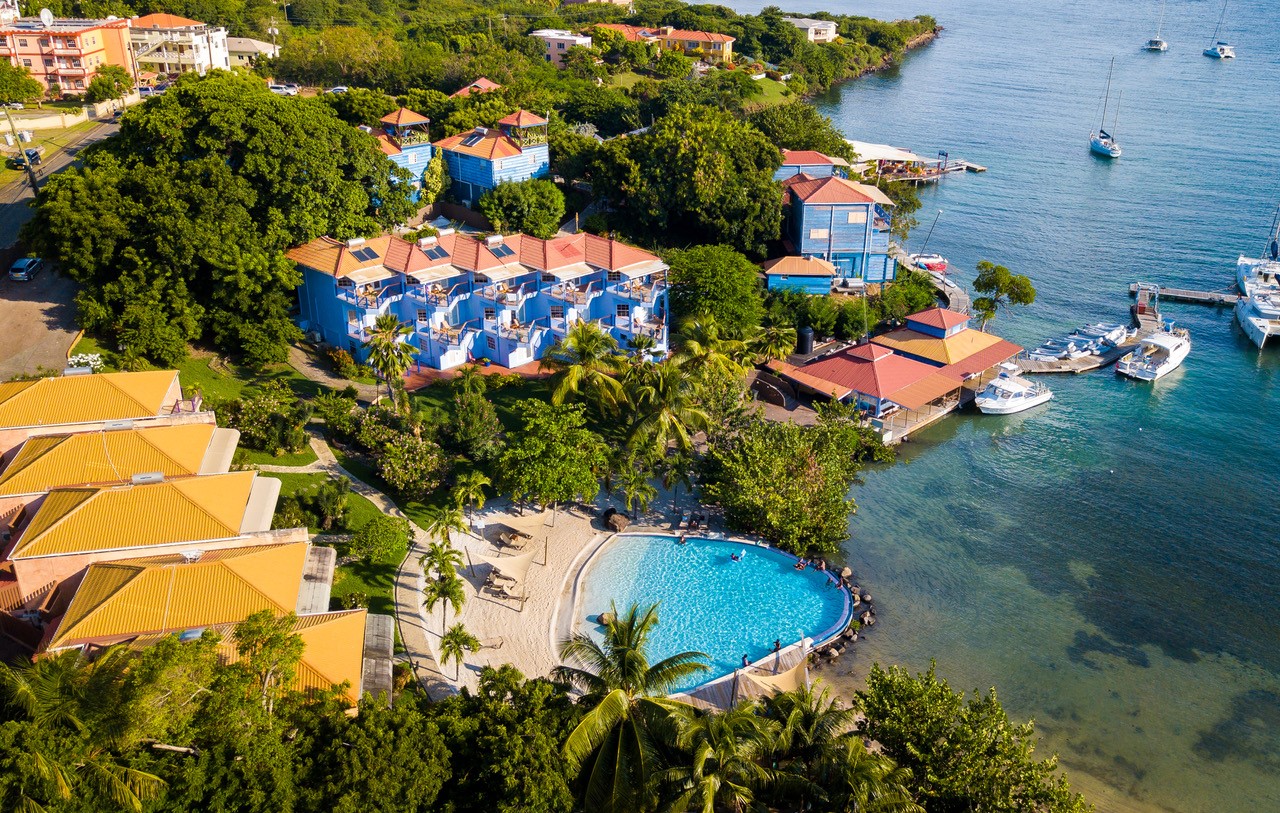
True Blue Bay Resort, Grenada
Given the COVID regulations in Grenada, we were to be held in ‘quarantine’ in the Hotel for the first 4 days, then a test provided by the Ministry of Health on day 5 before being let loose on the island thereafter. Our expectation of quarantine was way more stringent than the reality!
We were shepherded to our rooms, all of which were in one central area, unpacked, and then hit the ‘Quarantine Pool’ – our very own private pool with bar! What could be better than this?! Meals were served in a separate dining room by the water’s edge, and if we didn’t want what was offered on the buffet, we ordered a la carte from the menu. In all honesty, it was like having our own private resort!
Diving was permitted too, as Aquanauts Grenada sit right on the dock in the quarantine area, so after a good night’s sleep, albeit with a very early rise, we humped our kit onto the dive boat, set up, went through the dive and H+S briefings and off we set!
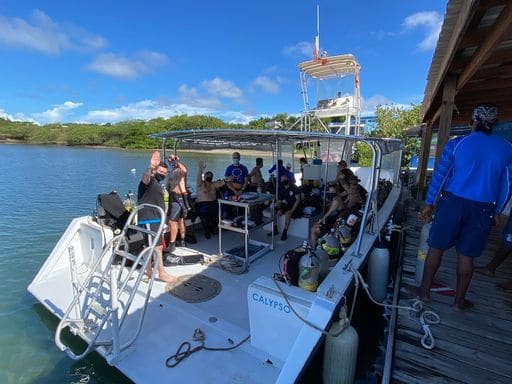
Day 5 had us all lined up like school children outside of the Medical Centre at the resort. Ministry of Health doctors and nurses put nasty things way too far up our noses and into our throats, and the testing was complete – 24 hours later we were all set free!
Breaking out of the quarantine area was great, and we got to take in the whole resort, have a day trip exploring the island, and use the a la carte restaurant and other pools. As brilliant as it was to be ‘free’ we missed our own pool!
So, what was travelling in the COVID World really like?
The airports at all stages of the journeys were exceptionally well organised. Social distancing was almost everywhere, and well adhered to. Masks were worn on all flights and at the airports, in transport to and from the resort, and in the resort itself, floor markings were everywhere, together with numerous hand sanitiser stations. Grenada itself, the resort and the dive centre, really got this right, and we had absolutely no fears.
We wore masks in the public areas of the resort, when interacting with staff (at the bar for example) and on the dive boats. We were even given souvenir masks by the Tourist Board!
Was it a hassle? Absolutely not. In truth, the actual travel was very little different to a ‘normal’ trip (I can remember those, but only just!). We experienced better space – more room on the planes, less crowding at the airports and in resort, and as we travelled as a group, we had our own dive boat. Honestly, it couldn’t have been any better!
What we did learn throughout the whole process of planning and execution of travel during this pandemic, is that we had to be, even more so than usual, ready to deal with last minute changes. So, even with a few hiccups on the way out and back that took some fixing, we had a GREAT time, and made it home safe and sound. And, COVID-free too, but just in time for lockdown v2.0.
If we hadn’t travelled with ATOL protection, and didn’t have comprehensive travel insurance, this could have been a very costly and exhausting experience.
Would we travel again during this pandemic? Yes, and without concern. But only with ATOL and/or ABTA Protection.
Our advice to all who are considering travel during these times is as follows:
- Be prepared for changes – flights, transport, COVID rules. If you have a top-notch bonded Travel Agent behind you, you should have little to worry about.
- Masks – the cloth ones are super comfortable, and you forget you are wearing them.
- Hand sanitiser – take it with you and use it!
- And finally, remember you are on holiday – relax, even if it hurts!
As we look to the future, we are hopeful. Vaccines are coming, testing on departure and return is available, and the rules are changing daily, making it less restrictive in terms of where we can go, and return from with shorter or zero quarantine. We expect there to be highs and lows in our ability to travel over the coming months, and we will just have to deal with them as they arise. COVID is by no means over, but we can see a light at the end of the tunnel.
Our sincerest of thanks for all of the expert support and organisation go out to Grenada Ministry of Health, Grenada Tourist Board, True Blue Bay and Aquanauts Grenada. You got it so, so right!
We will be back!
Find out more about the worldwide dive itineraries that The Scuba Place offers at 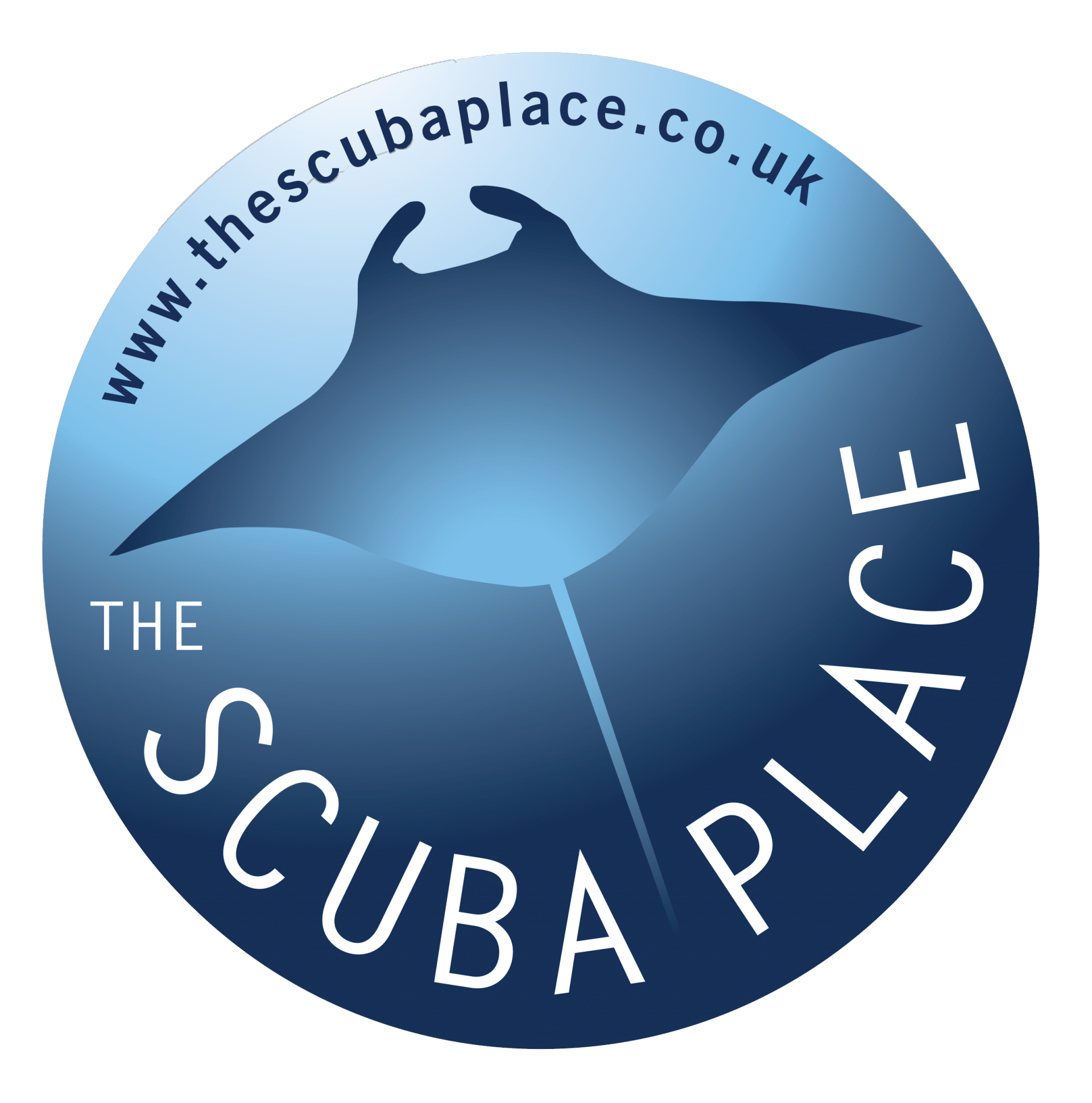 www.thescubaplace.co.uk.
www.thescubaplace.co.uk.
Blogs
Heading out on the water this Summer? Watch for manatees
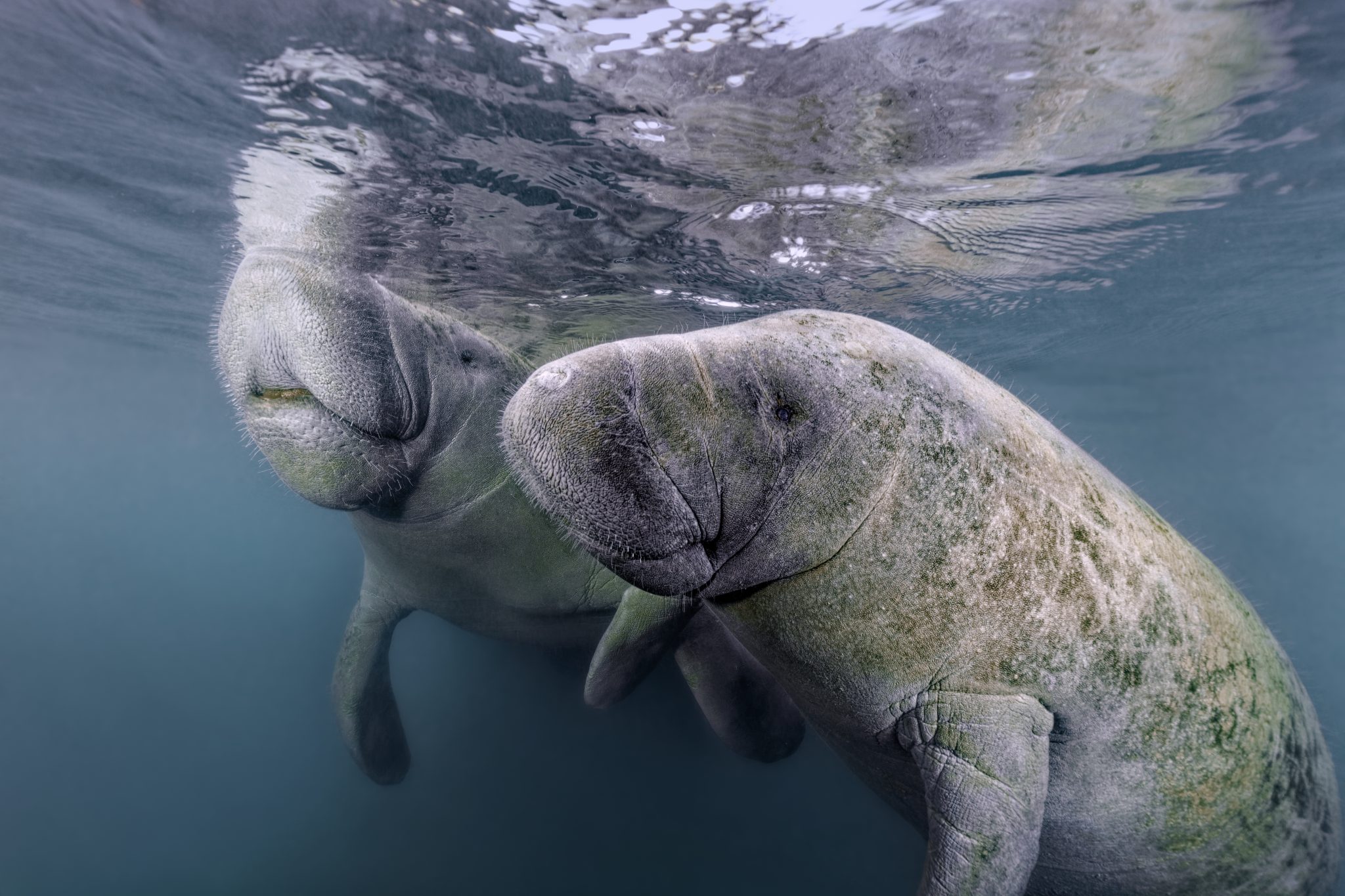
As National Safe Boating Week approaches, Save the Manatee® Club is urging boaters, and anyone that enjoys Florida’s waterways, to respect and protect the defenseless manatees that inhabit our shared waterways. From May 18 to 24, leading up to Memorial Day Weekend, the campaign aims to raise awareness about recreational boating safety and the importance of safeguarding imperiled manatees during the summer boating season. This week also emphasizes the importance of encouraging boaters to enroll in a boating safety course.
Manatees are semi-migratory marine mammals that are commonly found in shallow estuaries, bays, rivers, canals, and coastal areas throughout Florida and neighboring states. With some manatees venturing as far west as Texas and as far north as Massachusetts, collisions between these gentle giants and watercraft have become distressingly frequent. Boat propellers and high-speed collisions pose significant threats to manatees, often resulting in severe injuries or even death.
Save the Manatee Club is calling on all water enthusiasts to follow essential manatee safety tips to ensure the well-being of the imperiled manatee:
- Obey Speed Zone Signs: Familiarize yourself with and adhere to posted speed limits to prevent collisions with manatees.
- Reduce Glare with Polarized Sunglasses: Wear polarized sunglasses to enhance visibility and spot manatees below the water’s surface.
- Recognize Manatee Signs: Learn to identify signs of manatees in the area, such as swirls or flat spots on the water caused by their movements.
- Respect Manatee Sanctuaries: Keep a safe distance from posted manatee sanctuaries and avoid pursuing or harassing these marine mammals, as it is illegal and can disrupt their natural behaviors.
- Report Distressed Manatees: In Florida, promptly report distressed, injured, tagged, or orphaned manatees to the Florida Fish and Wildlife Conservation Commission (FWC) at 1-888-404-FWCC (3922). Outside of Florida, report sightings to the appropriate state agency or rescue organization. A list of agencies to contact is available at savethemanatee.org/report.
- Protect Seagrass Beds: Avoid boating over seagrass beds and shallow areas where manatees may be feeding. Stick to deep water channels while remaining vigilant, as manatees also utilize these channels during their travels.
- Dispose of Fishing Line Responsibly: Anglers should properly dispose of or recycle used fishing line to prevent entanglement hazards for manatees.
“Each year, National Safe Boating Week provides an excellent reminder for all of us to be aware that we share our waterways with vulnerable manatees,” emphasized Patrick Rose, Aquatic Biologist and Executive Director of Save the Manatee Club. “With the recent Unusual Mortality Event on Florida’s East Coast claiming an alarming number of manatees’ lives, it is more crucial than ever to prevent preventable deaths caused by watercraft collisions. By following manatee-safe boating guidelines, such as obeying speed zones and remaining vigilant for manatees, everyone on the water can contribute to the protection of these gentle giants.”
Save the Manatee Club offers a range of free materials to help safeguard manatees and raise awareness about manatee-safe boating practices. Shoreline property owners and park or marina managers can order aluminum dock signs to alert others about the presence of manatees in their areas. Boaters and paddlers can request packets containing a safety tips card, a waterproof boat banner, and a decal to display on their vessels, providing the number to report manatees in distress. To view and request these materials, visit savethemanatee.org/resources. Save the Manatee Club will also be hosting a live webinar for National Safe Boating Week on Tuesday, May 21st at 6pm EST. To register, visit savethemanatee.org/register.
Marine Life & Conservation Blogs
Book Review: Shells of the World
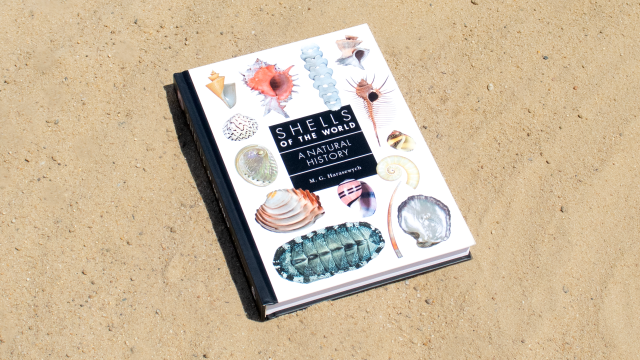
Shells of the World: A Natural History by M.G. Harasewych
Shells of the world is a guide to the world of marine, shelled molluscs. And what a varied and interesting world it is. Some of my favourite things to find on a dive are detailed in this book, including disco clams (or Electric File Clams as they are correctly names), the cephalopods, giant clams and sea hares. There are also many on my wish list, top of which is the Nautilus.
Each chapter provides a detailed description of the species, along with beautiful images. You can dive deeper and discover where they live, both with global distribution and the habitat they prefer. Learn about their diet, reproduction and diversity.
Having dipped in and out of this lovely book over the past few weeks, it has inspired me to learn more about this group of animals that we see on most divers, wherever we are in the world. Some of the shells are incredibly intricate and beautiful. I have always agreed with never collecting, or touching, marine life. The description of a certain set of cone shells should be a warning to those that are happy to pick up marine life! One of the cone shells has a local name called the cigarette snail. Why? Because once the venom is in your system from this animal, you only have time to smoke one cigarette before the affects of the venom are fatal!
What the publisher says:
Mollusks are invertebrate animals with a remarkable natural history and a rich fossil record, and their shells are prized for their breathtaking variety and exquisite beauty. Shells of the World provides a wide-ranging look at the incredible diversity of marine mollusks. An informative introduction outlines the lineages covered, followed by a directory section, split into classes, that profiles a broad selection of different taxa to give a sense of their sheer numbers and variety.
- Features hundreds of beautiful color photos, depicting both the live animals and their shells
- Discusses mollusk evolution, anatomy, life cycles, behavior, and ecology
- Describes unique characteristics, distribution, habitat, and size
- Provides valuable insights into the conservation of the world’s marine mollusks
- Ideal for malacologists and shell collectors everywhere
About the Author:
M. G. Harasewych is research zoologist emeritus and former curator in the Department of Invertebrate Zoology at the Smithsonian Institution’s National Museum of Natural History. A fellow of the American Association for the Advancement of Science, he is the author (with Fabio Moretzsohn) of The Book of Shells: A Life-Size Guide to Identifying and Classifying Six Hundred Seashells.
Book Details
Publisher: Princeton University Press
Hardcover
Price: £25
ISBN: 9780691248271
Published: 9th April, 2024
-

 Marine Life & Conservation Blogs3 months ago
Marine Life & Conservation Blogs3 months agoCreature Feature: Swell Sharks
-

 Gear Reviews4 weeks ago
Gear Reviews4 weeks agoGEAR REVIEW – Revolutionising Diving Comfort: The Sharkskin T2 Chillproof Suit
-

 Blogs2 months ago
Blogs2 months agoMurex Resorts: Passport to Paradise!
-

 Blogs3 months ago
Blogs3 months agoDiver Discovering Whale Skeletons Beneath Ice Judged World’s Best Underwater Photograph
-

 News3 months ago
News3 months agoPADI Teams Up with Wellness Brand Neuro to Drive Ocean Change and Create a Blue State of Mind
-

 Gear Reviews3 months ago
Gear Reviews3 months agoGear Review: Oceanic+ Dive Housing for iPhone
-
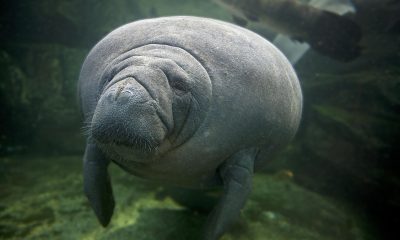
 Blogs2 months ago
Blogs2 months agoSeagrass Awareness Month brings critical food source for Manatees to centre stage
-

 Marine Life & Conservation2 months ago
Marine Life & Conservation2 months agoSave the Manatee Club launches brand new webcams at Silver Springs State Park, Florida



